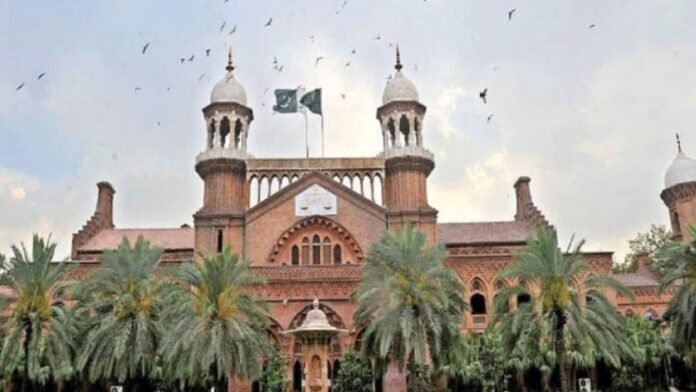Recently, the Lahore High Court came out with a written order regarding several petitions directed explicitly towards challenging the constitutionality of section 3 of the detention laws. Over the years, this has been a contentious provision, considering the petitioner’s observations on its abuse, particularly relating to the political abuse of such detentions. The hearing, presided over by Amjad Rafiq J, is a watershed moment in the legal debates on the legal provisions of detention in Pakistan.
Background of the Petition Lahore Court
The petition in the Lahore High Court seeks to strike down section 3 law of the detention laws because it is unconstitutional. As para 23 of the petition argues, this political section is extending its orbit to non-essential reasons, attempting to deprive freedom to the citizens, even though there is no political consideration. The petitioner argues that authorities should only apply detention measures when internal or external circumstances demand them. The petition urges the court to suspend the enforcement of Section 3 and to investigate how authorities apply it politically and potentially abuse it.
Notice of Motion Lahore Court
In the Lahore High Court’s written order, orders were made regarding the petitioner and the Punjab government. The petitioner’s counsel sought immediate relief by seeking the immediate suspension of Section 3 so that the detention orders under this provision could not be issued for the timing. However, the lawyer representing the Punjab government prayed for more time to prepare arguments, which she suggested concerning the scale and delicateness of the case.
Also, the court has ordered the government lawyer to assist in addressing the court on the legal status and legal application of Section 3. This instruction indicates the seriousness of the respect that the court attaches to the section as it intends to curb political abuse of the section.
The written order further specifies that the court adjourned the hearing, scheduling the next session for October 1 to allow both parties time to prepare their arguments. This postponement shows that the court intends to thoroughly examine the legal provisions, which is why it did not reach a swift conclusion.
What Is Section 3 Of Detention Laws?
It empowers the government to use detention against individuals that it considers a threat to public order or national security, often circumventing the requirement of judicial authorization at the onset.
The apparent goal of these provisions is the maintenance of public order. These provisions, however, have come under heavy criticism based on their abuse. Detractors advocate of the torture deviancy scope who, due to unclear definitions and inadequate systems of oversight, lapse into politically motivated torture where the state can abuse torture by arresting political opponents without rationale.
The Petitioner’s Concerns and Legal Outcomes Lahore Court
The most important fact about the section regarding the petitioner’s peculiar paragraphs is that they practically accuse the Polish administration of using section 3 for political purposes. This has potentially dangerous consequences from a legal and ethical point of view that attempts to guarantee national security and human rights in the legal spheres in Pakistan.
The petition challenges the section on constitutional grounds, arguing that it violates fundamental rights, specifically the right to free speech, a fair trial, and protection from arbitrary arrest. If the court finds for the petitioner, it could create a significant court ruling that would limit the government from arresting people under this section.
Next Steps: Hearing on October 1 Lahore Court
However, the Lahore High Court has postponed the hearing to one October, when full arguments from the petitioner and October 1st will be heard. This second half of the hearing will be critical in resolving the fate of Section 3 and the implications of incorporating it into Pakistan’s body of laws on detention.
This court’s decision in this particular case will have a huge, long-term impact not only on political detainees but also on how the Pakistani government views security and freedom’s equilibrium.
The petition against the constitutional validity of Section 3 has raised some important questions about the use of detention laws in Pakistan. As the Lahore High Court is actively looking into this particular provision, it is safe to say that it will be a watershed point in the discussion of where the balance lies between the state and the individual’s civil liberties.


